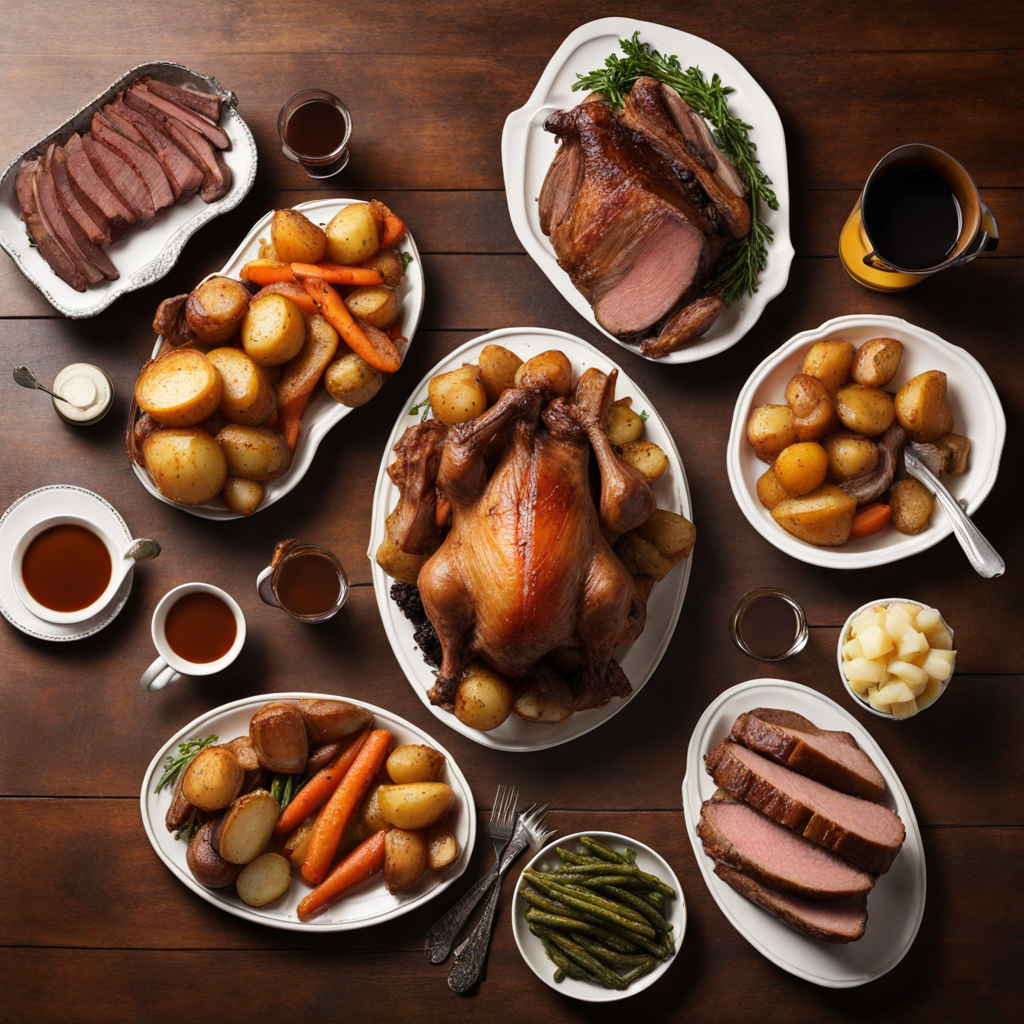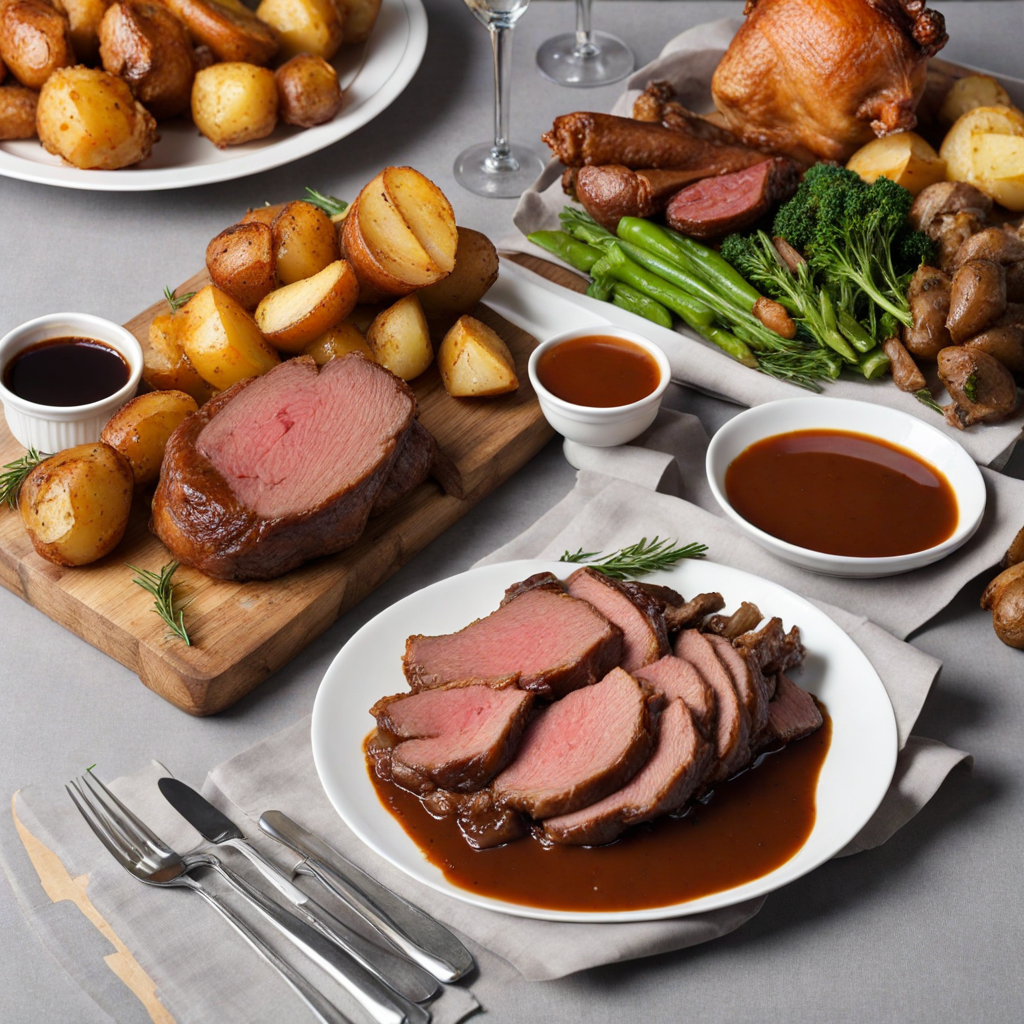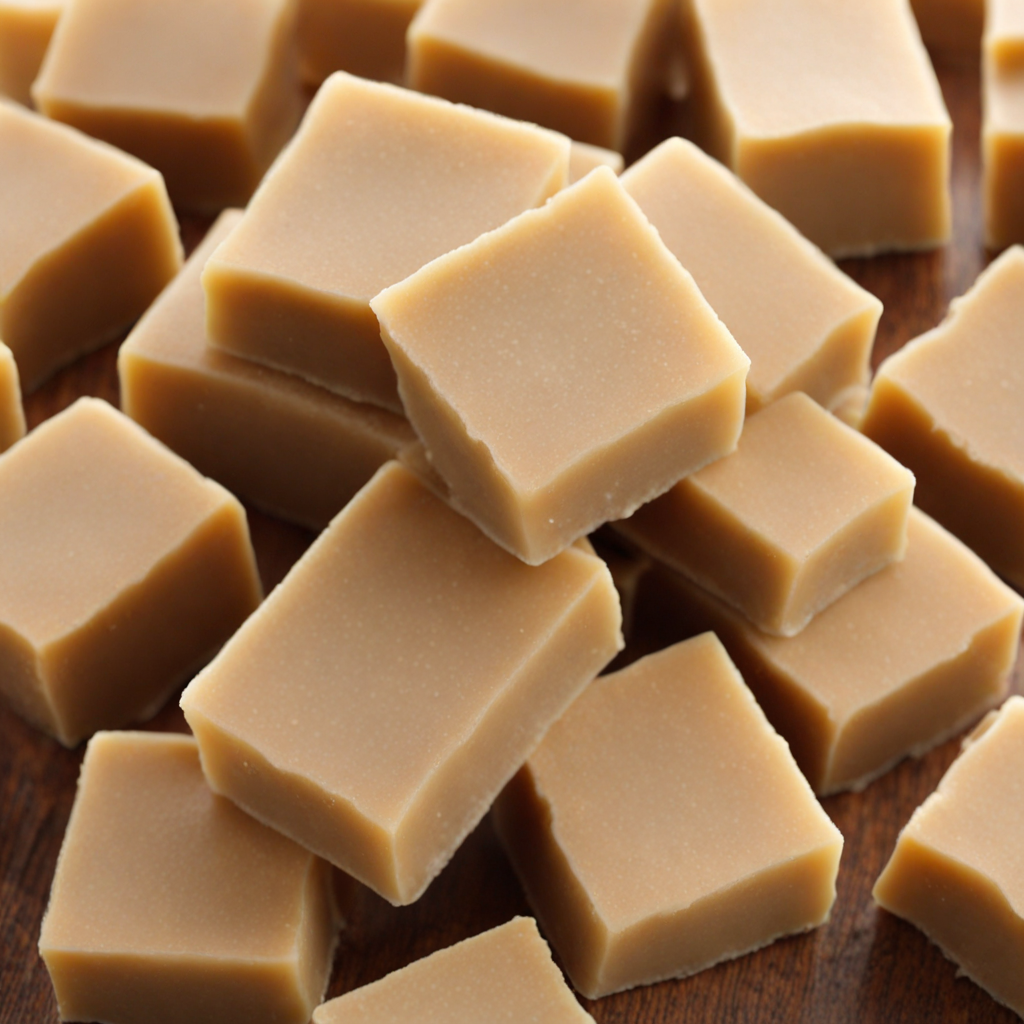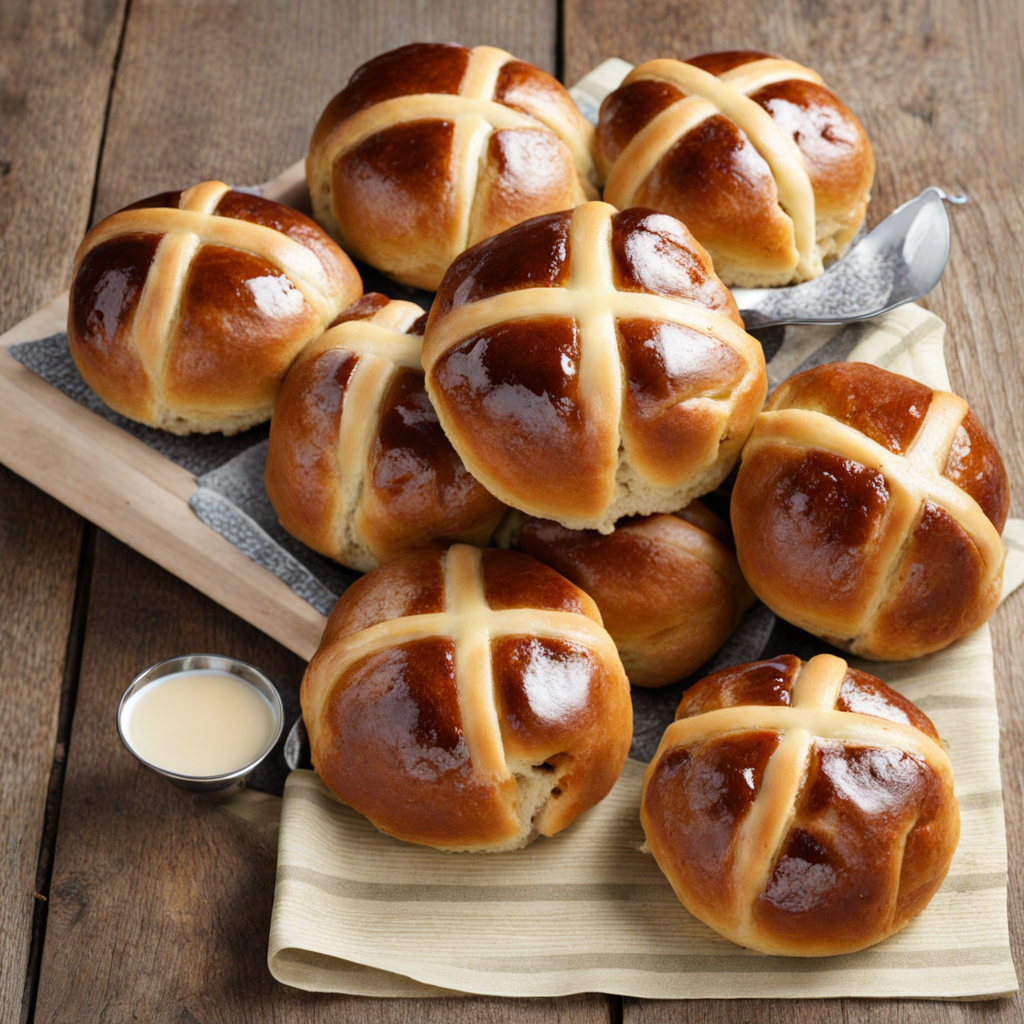Sunday Roast
Sunday Roast is a traditional British meal that embodies the essence of comfort food, typically enjoyed on Sundays with family and friends. At the heart of this dish is a perfectly roasted joint of meat, which can vary from succulent beef to tender lamb, juicy chicken, or even flavorful pork. The meat is often seasoned and cooked to perfection, allowing the natural flavors to shine through. Accompanying this centerpiece is a medley of roasted vegetables, such as carrots, parsnips, and potatoes, which are caramelized to bring out their inherent sweetness and depth of flavor. One of the defining features of a Sunday Roast is the accompaniment of Yorkshire puddings, particularly when beef is the meat of choice. These light, airy pastries are made from a simple batter of eggs, flour, and milk, then baked in hot oil to achieve a golden-brown, puffy exterior. The meal is further enhanced by rich gravies and sauces, often made from the drippings of the roasted meat, which add moisture and a burst of flavor to every bite. Additionally, a side of creamy mashed potatoes or crispy roasties provides the perfect vehicle for sopping up the gravy. To round off the experience, Sunday Roast often includes a selection of seasonal vegetables, such as green beans, Brussels sprouts, or peas, adding a pop of color and nutrition to the plate. This hearty meal is not just about taste; it’s also about the communal experience of gathering around the table, sharing stories, and savoring the flavors of home-cooked goodness. Each bite of this classic dish transports you to a cozy Sunday afternoon in the UK, where tradition and flavor come together in a delightful culinary celebration.
How It Became This Dish
The Sunday Roast: A Culinary Tradition of the United Kingdom The Sunday roast is not merely a meal; it is a cherished ritual deeply embedded in British culture. This culinary tradition, characterized by a centerpiece of roasted meat accompanied by an array of vegetables, Yorkshire pudding, and a rich gravy, has evolved over centuries, reflecting social, economic, and cultural shifts in British society. #### Origins The origins of the Sunday roast can be traced back to the medieval period in England. During these times, the concept of Sunday as a day of rest was strictly observed, and church attendance was a priority for the faithful. As a consequence, cooking large meals on Sundays became a practical solution for families who could not prepare food during the day. In the 15th century, wealthy households would prepare lavish feasts after attending church. The well-off had the means to roast whole animals, and the practice of cooking large joints of meat, such as beef, lamb, or pork, became a symbol of status and hospitality. The term "roast" itself dates back to the early 14th century, implying a method where meat is cooked by exposing it to an open flame or hot oven. One of the key developments in the tradition of the Sunday roast occurred during the Industrial Revolution in the 18th and 19th centuries. As factories sprang up, workers found themselves with limited time for preparation during the week. This led to the practice of slow-roasting meat on Sundays, allowing families to enjoy a hearty meal after a week of labor. The roast was often placed in the oven before church and left to cook slowly for several hours, creating a delicious aroma that filled the home upon return. #### Cultural Significance The Sunday roast transcends mere sustenance; it embodies the values of family, community, and tradition. It is often seen as a way to bring families together, serving as an occasion for bonding and sharing experiences. Traditionally, families would gather around the dining table, where the roast would be the centerpiece of the meal. The act of carving the meat, passing around the dishes, and enjoying the meal in the company of loved ones has made the Sunday roast a significant social event. In addition, the Sunday roast has become a cultural touchstone in the United Kingdom. It is often referenced in literature, film, and television as a quintessential aspect of British life. The meal reflects the notion of comfort and familiarity, evoking a sense of nostalgia for many. With its roots in agrarian society, the Sunday roast also symbolizes the connection to the land and the importance of seasonal produce. In the 20th century, the Sunday roast began to evolve further, influenced by changing social dynamics. The rise of the middle class and the decline of strict class distinctions led to variations in the traditional meal. While beef remained the classic choice, other meats such as chicken, pork, and even vegetarian options began to gain popularity. This adaptability helped the Sunday roast maintain its relevance even as societal norms shifted. #### Development Over Time As the 20th century progressed, the Sunday roast continued to adapt to modern tastes and lifestyles. The introduction of convenience foods in the post-World War II era changed how families approached meal preparation. Frozen meats and pre-prepared vegetables made it easier for busy families to enjoy a Sunday roast without the extensive preparation that had once been required. Regional variations of the Sunday roast also emerged, influenced by local ingredients and traditions. In the north of England, for instance, lamb is often favored over beef, while in the West Midlands, a roast of pork may take precedence. Yorkshire pudding, a staple of the Sunday roast, is particularly associated with the northern regions of England, where it is considered an essential accompaniment to roast beef. The pudding, made from a batter of flour, eggs, and milk, is baked in the drippings from the meat, creating a fluffy and savory side dish that has become iconic in its own right. In recent years, the Sunday roast has witnessed a renaissance, as chefs and home cooks alike have embraced the importance of sourcing local and sustainable ingredients. The farm-to-table movement has encouraged a renewed appreciation for seasonal produce, with many opting to include a variety of vegetables that reflect the harvest. This shift not only enhances the flavor and nutritional value of the meal but also emphasizes the connection to local agriculture. Moreover, the Sunday roast has made its way onto the menus of pubs and restaurants across the UK, often served as a special on Sundays. Establishments take pride in their roasts, with many creating elaborate variations that highlight their culinary creativity. From gourmet twists on traditional dishes to vegetarian and vegan adaptations, the Sunday roast continues to evolve while maintaining its core identity. #### Conclusion The Sunday roast stands as a testament to the enduring nature of culinary traditions. It is a meal steeped in history, reflecting the changing tides of British society over centuries. From its humble beginnings in medieval households to its status as a beloved ritual, the Sunday roast encapsulates the essence of family, community, and the joy of shared meals. As the UK continues to evolve, so too does the Sunday roast, adapting to modern tastes while remaining a cherished part of the cultural landscape. Whether enjoyed at home, in a cozy pub, or as part of a grand family gathering, the Sunday roast will likely remain a staple of British life for generations to come—a delicious reminder of the importance of connection, heritage, and the simple pleasure of a well-cooked meal.
You may like
Discover local flavors from United Kingdom







